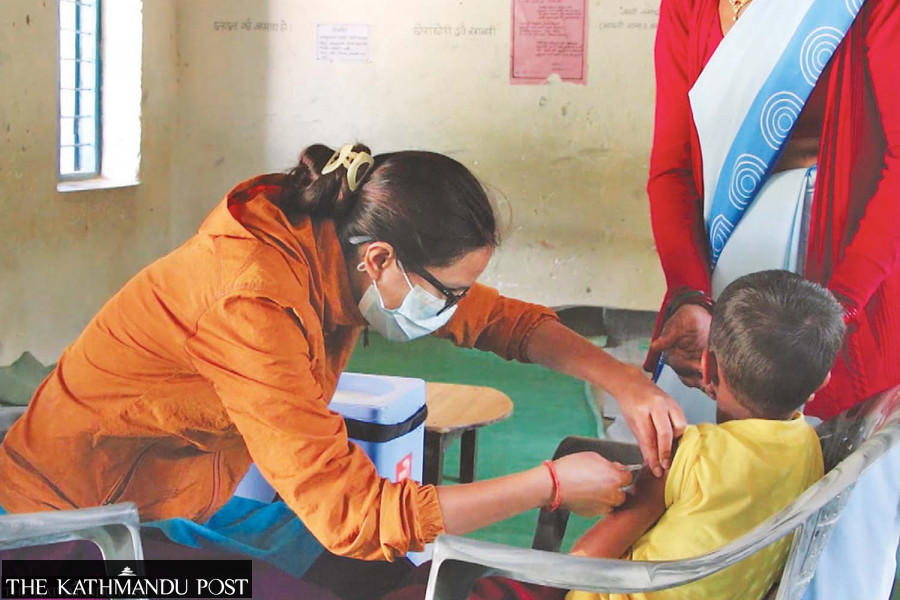Health
Cholera, measles-rubella vaccination drive in quake-hit, high-risk districts soon
The Health Ministry has extended the deadline for measles elimination to 2026.
Post Report
The Ministry of Health and Population plans to launch additional vaccination drives in quake-hit and adjoining districts and 25 other high-risk districts to prevent outbreaks of vaccine-preventable diseases.
Officials said they have been working to administer vaccines for cholera, polio and measles-rubella diseases within three months.
“We have been seeking resources to launch the vaccination drive,” said Dr Bibek Kumar Lal, director of the Family Welfare Division. “The campaign will be launched within February.”
The National Immunisation Advisory Committee, an expert panel, had recommended the Health Ministry launch an additional vaccination drive in the quake-affected and high-risk districts. The expert group also recommended a drive against diseases such as measles and rubella, polio, cholera, pneumonia, and influenza.
At least 154 people died, hundreds were injured and thousands displaced by the magnitude 6.4 earthquake in Jajarkot and West Rukum districts of Karnali Province on November 3.
“The measles and rubella campaign will be launched throughout the country in 2024 but we are working to start the programme in the high-risk and quake-affected districts as early as possible,” Lal said.
Measles is a highly contagious viral disease transmitted through fluids from an infected person’s nose, mouth or throat. It can be potentially deadly for unvaccinated people.
Nepal had committed to eliminating measles by 2023 after missing the earlier deadline of 2019. To declare measles as eliminated, the number of cases should be less than five per 1,000,000 people throughout the year.
However, the deadly virus was reported in over 14 districts across the country at the start of 2023. At least one child died and hundreds were infected with the disease. The Ministry of Health and Population has now extended the deadline for measles elimination to 2026.
Public health experts have warned of outbreaks of communicable and vaccine-preventable diseases in the quake-hit areas, as thousands of people have been rendered homeless, and the health and hygiene of the displaced people have been compromised. Officials concede that preventing possible outbreaks in the coming days will be challenging, as thousands of people have been forced to live out in the open amid growing cold.
The quake brought down not only houses but also toilets, increasing open defecation and the risk of contamination of water sources, officials say. Jajarkot witnessed the worst diarrhoea outbreak in 2009, in which 111 people died and over 6,000 were infected. The mid-western district also saw an outbreak of cholera in 2014 and 2016.




 14.24°C Kathmandu
14.24°C Kathmandu














